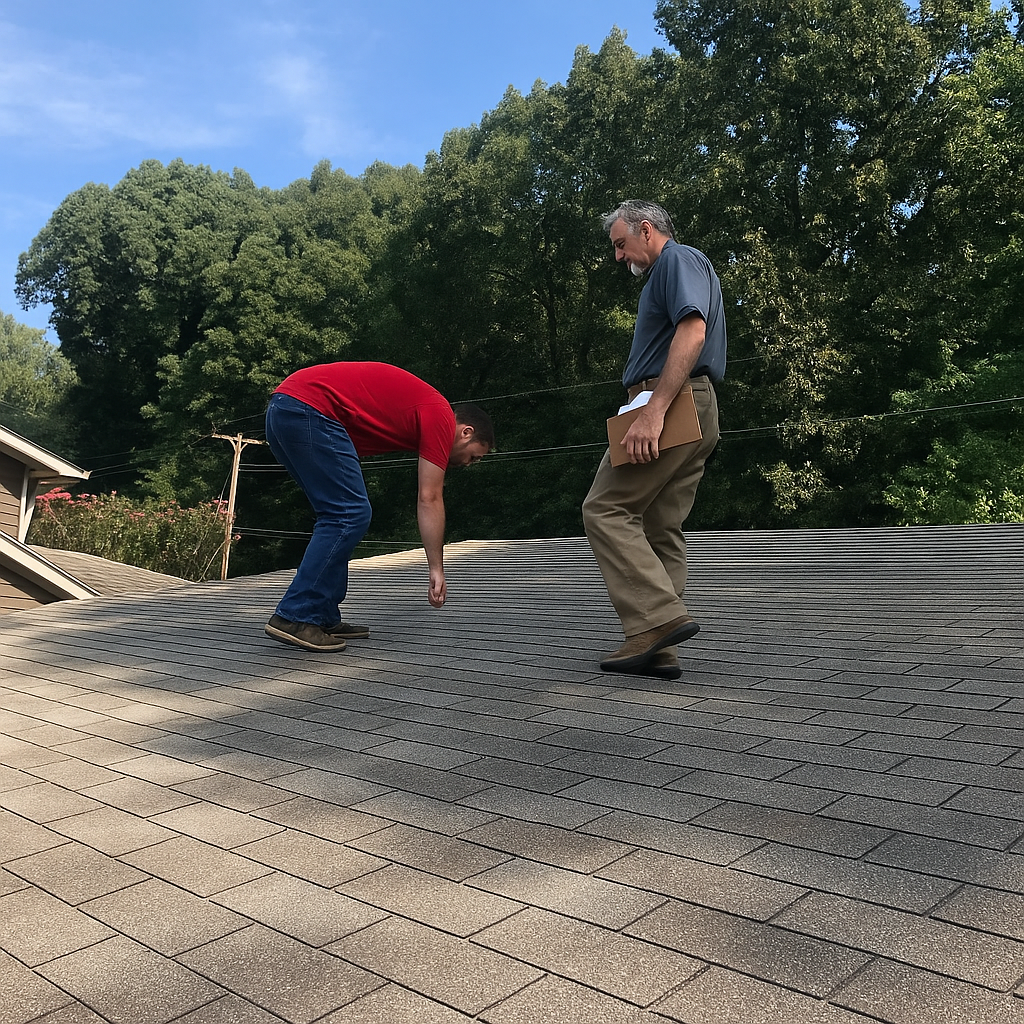If your roof has been hit by hail, wind, or other storm damage — your first instinct might be to call the insurance company and start a claim.
Don’t.
At least, not yet.
Filing too early, without the right documentation or understanding of the process, can leave you underpaid, denied, or stuck footing the bill for things that should’ve been covered.
This post will walk you through what you need to know before you file a claim, so you can protect your home, your wallet, and your peace of mind.
1. Why You Should Inspect Before You File
One of the biggest mistakes homeowners make is calling in a claim before they have their roof professionally inspected.
Here’s why that’s risky:
- If there’s not enough visible damage, your claim could be denied — and still go on your record
- Too many claims (even denied ones) can raise your premiums or make it harder to get covered later
- You lose the strategic advantage of knowing what to say, what to ask for, and what’s actually damaged
Instead, call a roofing contractor who specializes in insurance work.
They’ll inspect your roof at no cost, document any damage, and tell you whether it’s worth filing.

2. Understand Your Policy Terms — Especially These
Before filing, take 15 minutes to review your homeowners policy and make note of:
- Deductible amount (this is what you’ll pay out-of-pocket)
- ACV vs. RCV coverage (does it pay full replacement or just current value?)
- Code upgrade clause (covers local building code changes — a huge deal)
- Coverage limitations (some exclude cosmetic damage, flat roofs, etc.)
Your contractor can help decode these for you, but understanding the basics makes sure you’re not blindsided by a small check and big repair bills.
3. Be Ready for the Adjuster — Don’t Go Alone
When your insurance company sends an adjuster, you need someone on your side there too.
If the roofer who inspected your home isn’t present, the adjuster may:
- Miss subtle damage
- Undercount hits in the test squares
- Skip documenting items like flashing, gutters, or vents
Your roofer should meet the adjuster on the roof, walk them through every piece of documented damage, and make sure nothing gets overlooked or dismissed.

4. Photos, Videos & Reports Are Power
Insurance companies aren’t in the business of overpaying — and without proper documentation, they’ll take any opportunity to reduce or deny your claim.
That’s why you want:
- Photos of all slopes, gutters, vents, flashing, soft metals, etc.
- Detailed inspection notes from your contractor
- A date-stamped storm report showing hail or wind impact in your area
The more you document, the harder it becomes for the carrier to lowball you.
5. Filing a Claim: The Right Way to Do It
Once your roofer confirms you have qualifying damage, here’s what to do:
- Call your insurance company and open a claim
- Provide the date of loss (your roofer should have the storm date)
- Let them know you’ve had a professional inspection
- Schedule the adjuster appointment and give the info to your contractor
From here, your contractor handles the heavy lifting — walking the roof, pointing out damage, and filing any supplements for missed items.
6. Final Tip: Don’t Just “Go With Their Guy”
Sometimes the insurance company recommends a roofer. Sounds convenient, right?
Not always.
These contractors are often working with the carrier — and may be more interested in minimizing costs than protecting your investment.
Instead, pick a roofer who:
- Works for you, not the insurance company
- Has a track record of storm restoration and claim support
- Meets the adjuster and handles the process from start to finish
Final Word: File Smart, Not Fast
Storm damage can be stressful — but rushing into a claim without the facts can cost you thousands.
Take 24–48 hours to get a free inspection, learn your options, and move forward strategically.
Need help? Contact Alfa Y Omega Construction today.
We’ll inspect your roof at no charge, walk you through the process, and help you get every dollar you’re owed — without the stress.

Slade is the Sales Manager at Alfa Y Omega Construction and brings over 24 years of hands-on experience in the construction industry. He’s passionate about helping homeowners navigate the often confusing process of roof replacement and storm-related insurance claims. With a background rooted in both fieldwork and customer service, Slade ensures every client is informed, protected, and treated with integrity. Whether it’s identifying hidden damage or guiding you through a complex claim, his goal is to simplify the process and deliver results. When you work with Alfa Y Omega, you get a team that fights for your home like it’s their own.



